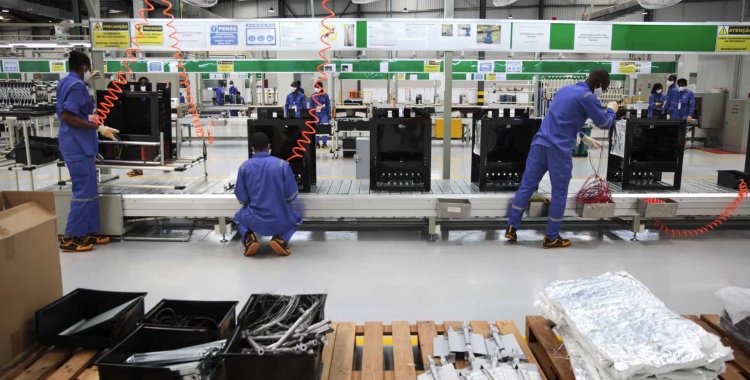The conclusions are contained in an information note from the Economic Studies Office of Banco de Fomento Angola (BFA), which Lusa had access, according to which 26 percent of initial assets have already been sold, another 25 percent have ongoing processes and 3 percent are expected to start in 2022.
Almost half (47 percent) of the original assets have not yet registered any development that has been made public.
Propriv, approved in July 2019, initially covered 195 assets and companies, with 38 sales/concessions, a liquidation and a transfer of assets to another company having been completed.
There were, however, 32 assets that were removed from the program and 16 that were added (essentially assets that were seized under asset recovery processes due to misappropriation of public funds), currently comprising 180 assets.
However, despite having been launched as a "quite ambitious" program for contemplating the sale of large public companies such as ENSA (insurance), Unitel (telecommunications), Endiama (diamonds), the "crown jewel" Sonangol (oil company state) and stakes in Angolan banking "the pace is slower than expected", with no sale of the most famous companies having been concluded, highlights the note from BFA.
The impact of the covid-19 pandemic is one of the factors contributing to this slowdown, analysts justify.
"By harming economic activity, processes have become more complex and interest in these assets will have decreased circumstantially. It is symptomatic that, among the sectors with many assets to be privatized, it is the transport sector that does not have any process in progress, since this is the sector that was most harmed by the pandemic", the note reads.
The telecommunications and real estate sectors have also been slow in progressing the processes, although in the first case there have been several announcements showing the intention to speed up privatizations.
The same happens with the financial sector, with the privatization of the BCI bank and the insurance company ENSA having only started.
In the oil sector, only the situations involving Sonangol's participation in Puma Energy, Sonadiets and Jasmin Shipping (liquidation) were resolved, leaving many entities whose processes are slow to move forward, as well as the cases of Sonangol, Endiama and Sonansing Xikomba whose only process is scheduled to start in 2022.
Sectors such as agriculture and industry have had a positive performance, especially in smaller assets.
The advance of privatizations in the area of agriculture is supported, according to analysts, "by the good prospects for the sector, which has grown for 10 consecutive quarters and already represented 5.6 percent of GDP [Gross Domestic Product] in the second quarter of this year" .
The note also points out that despite the limited, "but not insignificant" monetary inflow, at around 144 million dollars (125 million euros), "the processes have had an important impact in freeing the State from a series of assets so far. unproductive, allowing them to start producing in private hands", as well as "more freedom and healthy competition in the private sector".
Analysts also point out that "the criterion of carrying out privatizations through a public tender has been fulfilled, with no signs of favoritism in the processes, with some foreign companies winning tenders".
They note, however, that more clarity and systematization is needed in the transfer of information to the public and suggest to the World Bank, which has been a consultant to the Government in this process, to make known its opinion and assessment of how the process is proceeding.
BFA: Propriv continues at a slow pace and cash inflow is "limited"
The privatization program (Propriv) continues at a slow pace and has had a limited financial income, with the agricultural and industrial sectors standing out as the most advanced, while the transport sector has not started any process.







